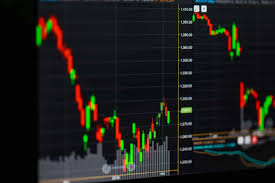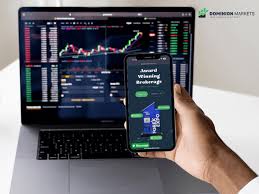
Understanding Forex Trading Brokers: A Comprehensive Guide
The world of forex trading is vast and increasingly complex, with numerous opportunities and challenges presenting themselves to traders. One of the critical components to successful trading is choosing the right forex trading broker. In this article, we will delve into the various aspects of forex trading brokers and how they can impact your trading journey. For those seeking reliable resources, forex trading brokers Global Trading Brokers can provide valuable insights and connections.
What is a Forex Trading Broker?
A forex trading broker acts as an intermediary between the forex market and retail traders. They provide the necessary platforms and tools for traders to buy and sell currency pairs, facilitating transactions and allowing individuals to participate in the global currency market. Brokers typically earn money through spreads, commissions, or other fees associated with trading.
Types of Forex Brokers
Forex brokers can be classified into several categories based on their operating model. Understanding the differences can help you choose the right broker that fits your trading style:
- Market Makers: These brokers create a market for traders by quoting both buy and sell prices. They may take the opposite side of your trade, thus managing their risk and taking advantage of your trades.
- ECN Brokers: Electronic Communication Network brokers connect traders directly to the market without intermediaries. They usually offer tighter spreads but may charge a commission per trade.
- STP Brokers: Straight Through Processing brokers route client orders directly to the liquidity providers, offering faster execution and lower spreads.
- DMA Brokers: Direct Market Access brokers provide traders with the ability to place orders directly on the market without the intervention of the broker.
Choosing the Right Forex Broker
Choosing the right forex broker is a significant decision that can greatly affect your trading experience. Here are some key factors to consider:
- Regulation: Ensure that the broker is regulated by a reputable authority. This adds a layer of security and trust.
- Trading Platforms: Look for brokers that offer user-friendly and feature-rich trading platforms, such as MetaTrader 4 or 5.
- Spreads and Commissions: Evaluate the fees associated with trading, including spreads, commissions, and overnight fees.
- Customer Support: Good customer support is crucial for resolving issues swiftly. Consider brokers that offer 24/7 support.
- Deposit and Withdrawal Options: Check the ease of depositing and withdrawing funds, including the processing times and fees involved.
- Leverage and Margin: Be aware of the leverage options provided by brokers, as it can significantly impact your trading profit and risk.

The Role of Leverage in Forex Trading
Leverage is a crucial feature in forex trading that allows traders to control larger positions with a relatively smaller amount of capital. While this can amplify gains, it can also increase the risk of significant losses. It is essential to understand how leverage works and to use it judiciously. Different brokers offer varying levels of leverage; adhering to regulatory limits and practicing sound money management principles is vital to sustainable trading success.
The Importance of Demo Accounts
Many forex brokers offer demo accounts that allow potential clients to practice trading without risking real money. This feature is invaluable for beginners who wish to familiarize themselves with the trading platform and test their strategies. A demo account allows traders to learn the mechanics of trading, understand market conditions, and develop a trading plan without the pressure of financial loss.
Understanding Spreads and Commissions
Spreads and commissions are integral to understanding the costs associated with trading. The spread is the difference between the buy and sell price of a currency pair. Some brokers offer fixed spreads, while others have variable spreads that can fluctuate based on market conditions. Commissions, on the other hand, are fees charged by brokers for executing trades, typically applied by ECN or STP brokers. It is essential to comprehend these costs as they can impact overall profitability.
Trading Platforms: The Heart of Forex Trading
The trading platform is where the action takes place, making it crucial to choose a broker that offers a robust platform. Popular platforms such as MetaTrader 4 and 5 provide features like advanced charting tools, automated trading capabilities, and a wide range of technical indicators. Reviewing the functionalities offered by the trading platform can aid in determining its suitability for your trading style.
Conclusion: Empowering Your Forex Trading Journey
In conclusion, the role of forex trading brokers is significant in determining a trader’s success. From understanding the different types of brokers to evaluating critical aspects like regulation, spreads, and trading platforms, making an informed choice is vital. As the forex market continues to evolve, staying informed and adapting to changes will empower traders to thrive in this dynamic environment. Whether you’re a beginner or an experienced trader, take the time to research and select brokers that align with your trading goals.